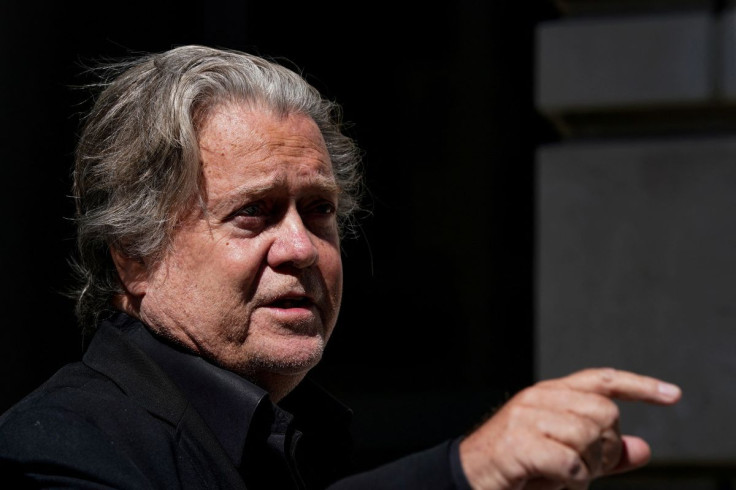U.S. Prosecutors To Open Criminal Case Against Trump Ex-adviser Bannon

U.S. prosecutors on Tuesday are due to begin making their case that Steve Bannon, a former adviser to former President Donald Trump, broke the law by defying a subpoena from the congressional probe of the Jan. 6 attack on the Capitol by supporters of the former president.
Bannon, 68, is facing two misdemeanor counts of contempt of Congress after he declined last year to provide testimony or documents to the Democratic-led House of Representatives select committee.
Before federal prosecutors begin their opening arguments, the court needs to finish selecting a jury of 12 people and two alternates, having whittled a pool of 60 potential jurors down to 22.
Bannon had previously sought to persuade U.S. District Judge Carl Nichols to delay his trial, arguing that the committee's high-profile public hearings could make it harder to assemble an impartial jury.
The committee presented evidence last week that Bannon spoke with Trump at least twice on the day before the Jan. 6, 2021, attack. The committee also played a clip of Bannon saying on a right-wing talk show on Jan. 5 that "all hell is going to break loose tomorrow."
The committee plans to hold another hearing on Thursday evening, aimed at reaching a broad television audience. Bannon's trial will likely still be going on at that point, and could extend into next week.
Despite the high-profile nature of the hearings and the accompanying news coverage, many prospective jurors on Monday told the judge they had not closely followed the case.
Bannon expressed some optimism about the status of jury selection as he exited the courtroom Monday, after he was asked by a reporter if he thought the jury could be fair.
"Yes I do," he said.
Nichols allowed one woman to remain as a potential juror even though she recalled seeing the clip of Bannon in one of the committee's recent hearings.
The judge noted that the woman indicated she had not prejudged the case, adding that "the mere fact of media coverage is not enough" to exclude her.
Bannon has argued that the material sought by the committee was protected by a legal doctrine called executive privilege that can keep certain presidential communications confidential, though the judge has ruled he cannot use this as a defense. Bannon left his White House role in 2017, years before the attack on the Capitol.
Trump told Bannon this month he was waiving any executive privilege claim.
Bannon reversed course this month and said he wanted to testify before a public committee hearing, nearly 10 months after defying the subpoena.
There has been no indication of any plan to have him do so, as the committee likely would want him to first testify in closed sessions in order to cover a wide range of matters.
© Copyright Thomson Reuters 2024. All rights reserved.





















